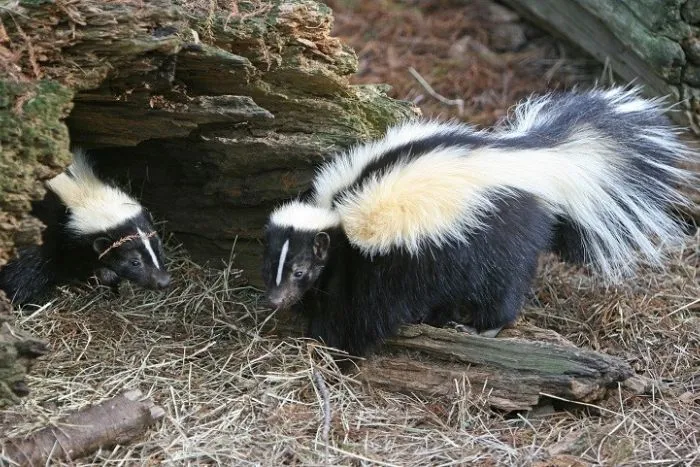It is never a good experience to come across skunks on your grounds, more so when the stench is blowing towards you! More than occasional visitors, the skunks may have complex dens directly under your feet (or almost literally in the forest). Early detection of these dens will have all the difference on how to solve your problem of skunk using a quick, human, and efficient way. We are of the opinion that we can defend ourselves and be in the first line of defense at Speedy Pest Control. Now, it is time to dive into the way in which one will find the skunk dens, safeguard their property.
Skunks have ill membership on using tricks. They will nest in any place with food and water and shelter- they want to be in the porch or in the crawl spaces or in the sheds or in the woodpiles. Do you see little holes that are forming in your lawn? Skunks feed on insects, small vertebrates but will not be afraid of your garbage, compost or even pet food left outside. When there is easy access and safety in your property, then it is a welcome home to a skunk family.
Skunk dens are excessively inconspicuous. They do not dig complex burrows, they instead make use of the existing ones, the woodchuck holes, the spaces under concrete slabs, or your backyard deck. The usual aperture measures between 4 and 6 inches in diameter and is usually provided with fresh soil, shallow depressions or boards that are loosened. Skunks do not usually litter so as to accumulate a lot of rubbish, unlike other animals such as raccoons or rats do; their holes are clean and they fit into the environment.

Trick: Skunks do not climb well and hence their den is often not elevated, as raccoon nests are.
It is easy to want to stuff in the hole and hope the skunks will simply evade but this will only leave trapped animals (particularly during spring when babies are around). No harsh chemicals or traps are to be used without professional assistance, they are usually unlawful and seldom effective.
Always be careful not to face a skunk straight, this is because the chances of getting sprayed or scratched are so high!
When you notice the above signs, then do not panic. Here’s what we recommend:
We do appreciate innovative and humane ideas at Speedy Pest Control. Our squadron is equipped with the environmentally friendly method of detecting and eliminating skunks in the most modern techniques to make sure that your house and your nerves remain intact. We will conduct a complete survey, locate existing dens and assist you in the protection of your property in the future.
Certainly, the smell is the best clue. However, there are other lesser indications which skunks are establishing camp:
Footprints and Tracks Skunk prints resemble the prints of any small hand; there are five toes on both paws. They may be found in the mud following rain.
Knowledge of the direction to seek is half the task. This is where it is most likely that you will find the hiding places of the skunks on your grounds:
Decks and Porches Bottom: These are the areas that provide protection and access to an easy escape.
After dealing with the problem at hand, take precautions to ensure the recurrence is avoided:
Congestion Items: Note: Use of a mesh barrier around decks and sheds.
The early detection of a skunk den is your secret of living in a skunk-free environment. Have you noticed that skunks have now moved in, Speedy Pest Control company will address you to all forms of solutions to solve that problem. Call us now and have secured, complete inspection on your home and Let us keep the skunk out of your place, jointly!